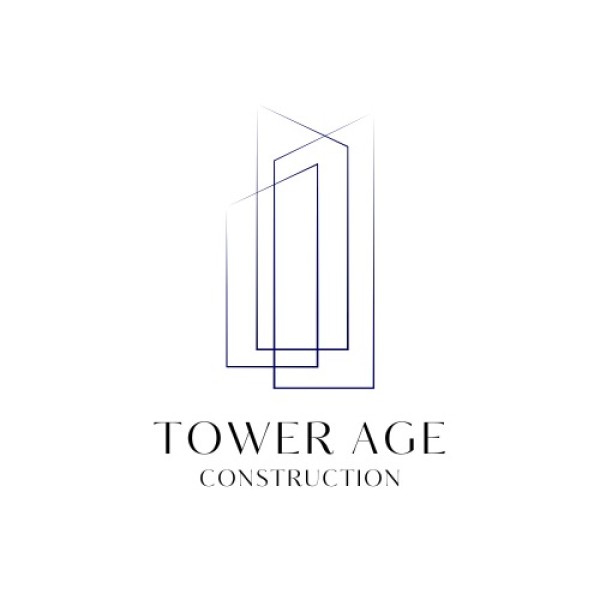Introduction to Extension Builders in Stoke Newington
Stoke Newington, a vibrant and historic area in North London, is known for its charming blend of old and new architecture. As families grow and lifestyles change, many homeowners in Stoke Newington are considering home extensions to maximise their living space. This article delves into the world of extension builders in Stoke Newington, exploring the benefits, processes, and considerations involved in extending your home.
Understanding the Role of Extension Builders
Extension builders are professionals who specialise in adding extra space to existing homes. They bring a wealth of experience and expertise to the table, ensuring that the extension is not only functional but also aesthetically pleasing. These builders work closely with architects, designers, and homeowners to bring visions to life, adhering to local building regulations and standards.
The Importance of Choosing the Right Builder
Choosing the right extension builder is crucial to the success of your project. A skilled builder will have a proven track record, excellent references, and a portfolio of completed projects. They will also be able to provide a detailed quote and timeline, ensuring transparency and trust throughout the process.
Key Qualities of a Reliable Extension Builder
- Experience: Extensive experience in building extensions, particularly in Stoke Newington.
- Reputation: Positive reviews and testimonials from previous clients.
- Communication: Clear and open communication throughout the project.
- Problem-solving skills: Ability to handle unexpected challenges effectively.
- Attention to detail: Ensuring high-quality finishes and adherence to design specifications.
Types of Home Extensions
Home extensions come in various forms, each serving different purposes and catering to different needs. Understanding the types of extensions available can help homeowners make informed decisions about their projects.
Single-Storey Extensions
Single-storey extensions are a popular choice for homeowners looking to add extra living space without altering the overall structure of their home. These extensions are typically added to the rear or side of the property, providing additional room for kitchens, dining areas, or living rooms.
Double-Storey Extensions
Double-storey extensions offer even more space by adding an extra floor to the home. This type of extension is ideal for growing families who need additional bedrooms or bathrooms. While more complex than single-storey extensions, they can significantly increase the value of a property.
Wrap-Around Extensions
Wrap-around extensions combine side and rear extensions to create a larger, more open-plan living area. This type of extension is perfect for homeowners who want to maximise their space and create a seamless flow between indoor and outdoor areas.
Loft Conversions
Loft conversions are an excellent way to utilise unused attic space. By converting a loft into a functional room, homeowners can add bedrooms, offices, or playrooms without altering the footprint of their home.
Planning and Designing Your Extension
Planning and designing a home extension is a critical stage in the process. It involves careful consideration of various factors to ensure the extension meets the homeowner's needs and complies with local regulations.
Setting a Budget
Establishing a budget is one of the first steps in planning a home extension. Homeowners should consider the cost of materials, labour, and any additional expenses, such as permits or design fees. A well-defined budget helps prevent overspending and ensures the project stays on track.
Working with an Architect
An architect plays a vital role in the design phase, helping to translate the homeowner's vision into a practical and aesthetically pleasing design. They ensure the extension complements the existing structure and adheres to local building codes.
Obtaining Planning Permission
In Stoke Newington, obtaining planning permission is often necessary for home extensions. Homeowners should consult with their local council to determine the requirements and submit the necessary applications. A reputable extension builder can assist with this process, ensuring all paperwork is completed correctly.
The Construction Process
Once the planning and design phases are complete, the construction process begins. This stage involves several key steps, each crucial to the successful completion of the extension.
Site Preparation
Site preparation is the first step in the construction process. It involves clearing the area, setting up temporary structures, and ensuring the site is safe for workers. This stage sets the foundation for a smooth construction process.
Foundation Work
Building a strong foundation is essential for any home extension. The foundation work involves excavating the site, pouring concrete, and ensuring the base is level and stable. A solid foundation ensures the longevity and safety of the extension.
Structural Work
Structural work involves constructing the framework of the extension. This includes erecting walls, installing beams, and creating openings for windows and doors. Skilled builders ensure the structure is sound and meets all safety standards.
Roofing and Insulation
Once the structure is complete, the next step is to install the roof and insulation. A well-insulated roof helps regulate temperature and reduce energy costs. Builders use high-quality materials to ensure the roof is durable and weather-resistant.
Interior Finishing
The final stage of the construction process is interior finishing. This includes installing flooring, painting walls, and fitting fixtures and fittings. Attention to detail is crucial at this stage to ensure a high-quality finish that meets the homeowner's expectations.
Benefits of Home Extensions
Home extensions offer numerous benefits, making them an attractive option for homeowners in Stoke Newington. From increased living space to enhanced property value, extensions can transform a home in many ways.
Increased Living Space
One of the most significant benefits of a home extension is the additional living space it provides. Whether it's a larger kitchen, an extra bedroom, or a new office, extensions offer the flexibility to adapt to changing needs and lifestyles.
Enhanced Property Value
Home extensions can significantly increase the value of a property. By adding extra space and improving the overall layout, homeowners can make their homes more appealing to potential buyers, resulting in a higher resale value.
Customisation and Personalisation
Extensions allow homeowners to customise and personalise their living spaces. From choosing the layout and design to selecting materials and finishes, extensions offer the opportunity to create a home that reflects individual tastes and preferences.
Improved Functionality
Home extensions can improve the functionality of a property by creating more efficient and practical living spaces. Whether it's a larger kitchen for entertaining or a dedicated home office, extensions can enhance the overall usability of a home.
Challenges and Considerations
While home extensions offer many benefits, they also come with challenges and considerations. Homeowners should be aware of these potential obstacles to ensure a smooth and successful project.
Budget Constraints
Budget constraints are a common challenge in home extension projects. Unexpected costs can arise, making it essential for homeowners to have a contingency fund and work closely with their builder to manage expenses effectively.
Planning Permission and Regulations
Obtaining planning permission and adhering to local regulations can be a complex process. Homeowners should be prepared for potential delays and work with experienced professionals to navigate the requirements successfully.
Disruption and Inconvenience
Construction work can be disruptive and inconvenient for homeowners. It's important to plan for potential disruptions and communicate with the builder to minimise the impact on daily life.
Finding the Right Builder
Finding the right builder is crucial to the success of a home extension project. Homeowners should take the time to research and interview potential builders, ensuring they choose a reputable and experienced professional.
Frequently Asked Questions
- How long does a home extension take? The duration of a home extension project varies depending on the size and complexity of the extension. On average, it can take anywhere from three to six months to complete.
- Do I need planning permission for a home extension in Stoke Newington? In most cases, planning permission is required for home extensions in Stoke Newington. It's essential to consult with the local council and obtain the necessary approvals before starting construction.
- How much does a home extension cost? The cost of a home extension depends on various factors, including the size, design, and materials used. Homeowners should obtain detailed quotes from builders to understand the potential costs involved.
- Can I live in my home during the extension work? In many cases, homeowners can continue living in their homes during the extension work. However, it's important to discuss this with the builder and plan for any potential disruptions.
- What should I look for in an extension builder? When choosing an extension builder, look for experience, positive reviews, clear communication, and a portfolio of completed projects. It's also important to ensure they are licensed and insured.
- How can I ensure my extension is energy-efficient? To ensure your extension is energy-efficient, work with your builder to incorporate high-quality insulation, energy-efficient windows, and sustainable materials into the design.
Final Thoughts on Extension Builders in Stoke Newington
Home extensions are a fantastic way to enhance your living space and add value to your property. With the right extension builder, homeowners in Stoke Newington can transform their homes to meet their evolving needs and preferences. By understanding the process, benefits, and challenges involved, you can embark on your extension journey with confidence and optimism.























